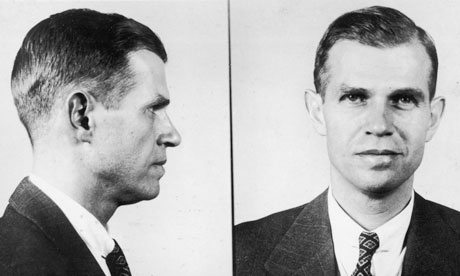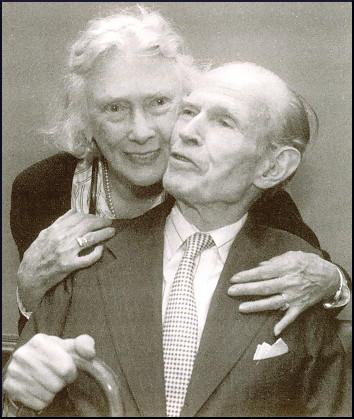

He did so, on “Meet the Press,” and three weeks later Hiss sued him for libel. Otherwise he remained adamant and dared Chambers to repeat his charges outside the legal sanctuary of the hearing room. Hiss first testified that he had never even known “a man by the name of Whittaker Chambers,” then began grudgingly to equivocate, and finally admitted a slight acquaintance with Chambers, but under a different name and several years earlier than his accuser alleged. He had only recently been appointed by John Foster Dulles as president of the Carnegie Endowment for International Peace. Lean and aloof, he was a graduate of Johns Hopkins and Harvard Law School and had been a protégé of Felix Frankfurter and Oliver Wendell Holmes, Jr., as well as secretary-general of the conference that drew up the charter of the United Nations. The charge seemed wildly implausible, and the forty-four-year-old Hiss indignantly denied it. Nine years later, on August 3, 1948, Chambers repeated his accusation before the House Committee on Un-American Activities. The consensus has shifted to accepting that Hiss was a spy for the Soviet Union, but there are still just enough ambiguities in the case, and a surfeit of invested political ideologues, to keep the argument alive.Almost fifty years after Whittaker Chambers first told a government official that Alger Hiss was a Communist, and forty years after Chambers’s charge was finally made public, Hiss has written Recollections of a Life (Seaver Books/Henry Holt), billed by its publisher as “his long-awaited memoir.” No one’s frank memoir would be more welcome many, even among those who believed Hiss innocent, also believe he had been unable to tell the whole story in court.Ĭhambers, a pudgy, rumpled confessed ex-Communist, first tried to warn the White House about Hiss, who was then a minor State Department official, shortly after the Nazi-Soviet pact had been signed in 1939. and the former Soviet Union indicated otherwise, although a true "smoking gun" was hard to pin down. Documents released in the '90s by the U.S. Hiss maintained his innocence up to his death in 1996. For decades the American left saw Hiss as an innocent victim of anti-communist hysteria and the political ambitions of Nixon, while the American right saw Hiss as proof that educated liberals were closet communists. Hiss served 44 months in prison, while his chief antagonist in the House of Representatives, Richard Nixon, became vice president. The next month Senator Joseph McCarthy famously announced a list of communists within the State Department, launching an era of hysteria over the threat of Soviet spies in the U.S. The statute of limitations on espionage had expired, but Alger Hiss was tried for perjury in 1949 and, after two trials, convicted in 1950. When all was said and done the evidence was against Hiss - dramatic details included microfilm hidden in a pumpkin and the concept of forgery by typewriter. He was accused in 1948 of having earlier been a Soviet agent, a charge made by former acquaintance Whittaker Chambers, a journalist and repentant former communist who named Hiss during testimony before Congress's House Committee on Un-American Activities (usually abbreviated HUAC). Roosevelt and was a key administrator in the founding days of the United Nations. A graduate of John Hopkins University (1926) and Harvard Law School (1929), Hiss clerked for Supreme Court Justice Oliver Wendell Holmes, Jr., was in the State Department under President Franklin D.

Alger Hiss was a central figure in a post-World War II scandal that became emblematic of political differences within the United States during the Cold War.


 0 kommentar(er)
0 kommentar(er)
